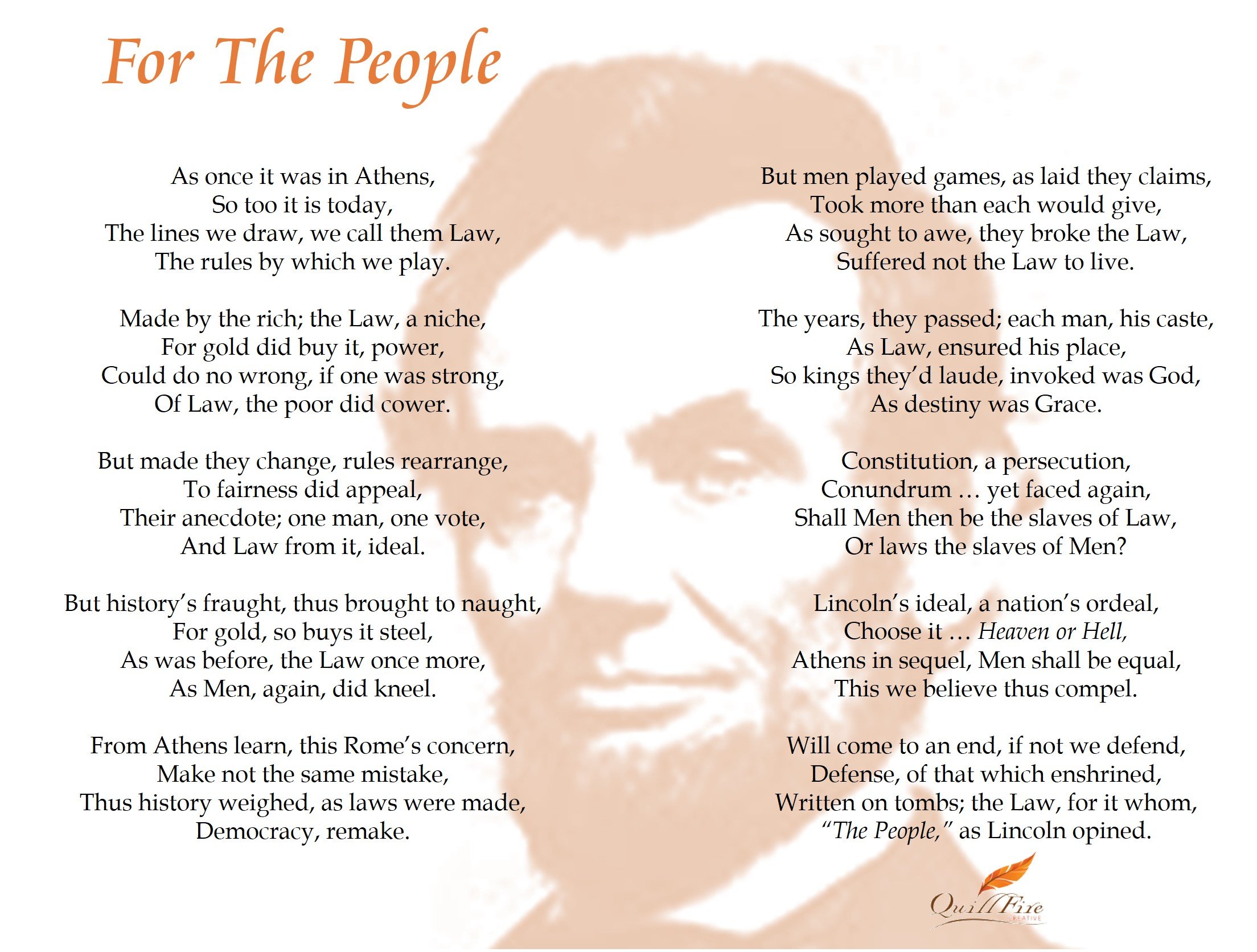

In my 50 years and 57 countries, there is one thing I've been convinced of beyond all others: That the "thin veneer of civilization" is just that ... thin.
It's been a long haul since Athens. Making the Law has never been a problem. Keeping it .. has.
Human beings are myopic. The most telling lesson of history, is that we don't learn from history. As Mark Twain reputedly said, "History never repeats itself, but it rhymes." We keep making the same mistakes.
The American Constitution
The American Constitution is an astonishing artifice of history. If one examines the historical records, one cannot be but amazed that it came about at all: Here's a Huffington Post account of one of the Founding Fathers' many outings:
In 1787, two days before they signed off on the Constitution, the 55 delegates to the Constitutional Convention partied at a tavern. According to the bill preserved from the evening, they drank 54 bottles of Madeira, 60 bottles of claret, eight of whiskey, 22 of porter, eight of hard cider, 12 of beer and seven bowls of alcoholic punch.
Despite a state of near-constant inebriation, they managed to cobble together the best ideas from millennium of fits and starts, and failed attempts, at Just Law. It wasn't perfect, but it was perfect enough to create the foundation of one of the most consequential countries in history. Of course, there was one imperfection so obvious that it could not, for long, go unaddressed.
To address it, America would eviscerate itself.
On a trip to Washington, D.C., I visited the Lincoln Memorial. On an interior wall is inscribed the words of Lincoln's 2nd Inaugural Address. I'd read it before, but something about reading it there, in that setting, brought tears to my eyes.
Most people don't know it, but Lincoln was an avid reader of poetry, and an occasional poet as well. Long before I became a poet, I was a soldier. And, perhaps, for that reason, the words of that passage (in bold) hit me on both levels:
On the occasion corresponding to this four years ago all thoughts were anxiously directed to an impending civil war. All dreaded it, all sought to avert it. While the inaugural address was being delivered from this place, devoted altogether to saving the Union without war, insurgent agents were in the city seeking to destroy it without war—seeking to dissolve the Union and divide effects by negotiation. Both parties deprecated war, but one of them would make war rather than let the nation survive, and the other would accept war rather than let it perish, and the war came.
And the war came.
When I listen to the hyperbole and vitriol of modern political discourse, I feel a sense of foreboding.


